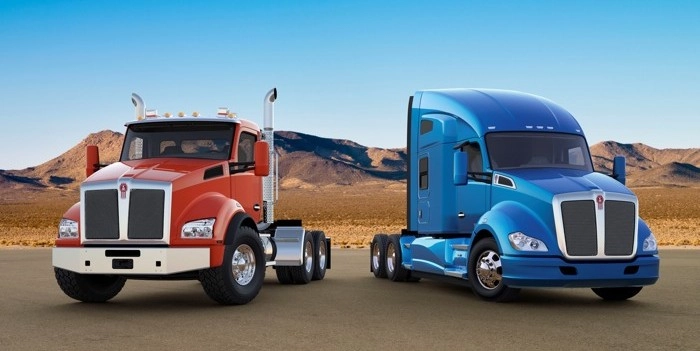A Comprehensive Guide to Truck Types: Understanding the Road Ahead
December 12, 2024 - 8:02:27 am

The world of trucks is vast and diverse, encompassing a wide range of vehicles designed for various purposes. From hauling heavy loads to delivering packages, trucks play a vital role in our daily lives. To navigate this complex landscape, it's essential to understand the different types of trucks and their specific applications. This comprehensive guide will shed light on the major truck categories, their key features, and their ideal uses.
- Heavy-Duty Trucks
Heavy-duty trucks, often referred to as Class 8 trucks, are the workhorses of the transportation industry. These powerful vehicles are designed to handle heavy loads over long distances. Popular brands like Kenworth, Peterbilt, and Freightliner dominate this segment.
Key Features of Heavy-Duty Trucks:
- Engine Power: Heavy-duty trucks are equipped with powerful diesel engines that deliver exceptional torque and horsepower.
- Payload Capacity: These trucks can handle massive payloads, often exceeding 80,000 pounds.
- Durability: Built to withstand rigorous conditions, heavy-duty trucks are designed for long-lasting performance.
- Driver Comfort: Modern heavy-duty trucks offer spacious and comfortable cabs, equipped with advanced technology and safety features.
Common Applications of Heavy-Duty Trucks:
- Long-haul trucking: Transporting goods across long distances.
- Over-the-road (OTR) trucking: Hauling freight between cities and states.
- Construction and mining: Transporting heavy equipment and materials to construction sites.
- Medium-Duty Trucks
Medium-duty trucks, often classified as Class 6 and 7 trucks, bridge the gap between light-duty and heavy-duty trucks. These vehicles are versatile and suitable for a wide range of applications.
Key Features of Medium-Duty Trucks:
- Engine Power: Medium-duty trucks typically feature powerful diesel engines, although some models offer gasoline options.
- Payload Capacity: These trucks can handle significant loads, making them ideal for regional delivery, construction, and other demanding applications.
- Maneuverability: Medium-duty trucks are more maneuverable than heavy-duty trucks, making them suitable for urban environments.
Common Applications of Medium-Duty Trucks:
- Regional delivery: Transporting goods within a specific region.
- Construction and landscaping: Hauling construction materials and equipment.
- Utility work: Transporting tools and supplies for utility workers.
- Light-Duty Trucks
Light-duty trucks, often referred to as Class 2 through 5 trucks, are the most common type of truck on the road. They are used for a variety of purposes, from personal transportation to commercial deliveries.
Key Features of Light-Duty Trucks:
- Engine Power: Light-duty trucks typically use gasoline engines, although some models offer diesel options.
- Payload Capacity: These trucks have a lower payload capacity compared to medium-duty and heavy-duty trucks.
- Maneuverability: Light-duty trucks are highly maneuverable, making them ideal for urban driving and tight parking spaces.
Common Applications of Light-Duty Trucks:
- Personal transportation: Hauling passengers and cargo.
- Delivery trucks: Transporting packages and goods within cities and towns.
- Utility work: Transporting tools and supplies for utility workers.
Specialty Trucks:
In addition to the three main categories, there are also specialty trucks designed for specific purposes. Some examples include:
- Dump Trucks: Used for hauling loose materials like dirt, gravel, and sand.
- Flatbed Trucks: Used for hauling heavy machinery and equipment.
- Tank Trucks: Used for transporting liquids like fuel, oil, and chemicals.
- Refrigerated Trucks (Reefer Trucks): Used for transporting perishable goods.
Choosing the Right Truck for Your Needs:
When selecting a truck, consider the following factors:
- Payload Capacity: Determine the weight of the cargo you'll be hauling.
- Fuel Efficiency: Evaluate your fuel needs and consider fuel-efficient engines and technologies.
- Driver Comfort: Ensure the truck provides a comfortable and ergonomic driving environment.
- Maintenance Costs: Factor in the cost of maintenance and repairs.
- Upfront Cost and Financing Options: Consider your budget and explore financing options available through dealerships like Wallwork Truck Center.
By carefully considering these factors, you can select the ideal truck to meet your specific needs and drive your business forward.

